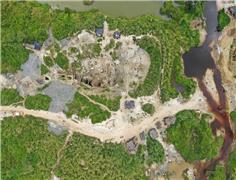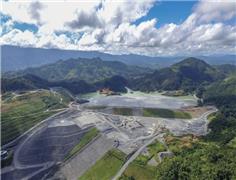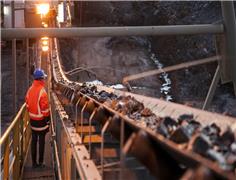- Write by:
-
Friday, June 12, 2020 - 8:35:10 PM
-
691 Visit
-
Print

Mining News Pro - The Covid-19 pandemic has underpinned the need for action with regard to artisanal and small-scale mining (ASM) and provides the opportunity to enhance and scale up work already being done in this space, participants in a webinar hosted by the London Bullion Market Association (LBMA) have said.
During the webinar, on June 11, LBMA CTO Neil Harby indicated that 83% of the world’s mining workforce relied on ASM for their livelihood, which equates to 40.5-million people.
He said these people were vulnerable before the pandemic, and were even more so now. As gold prices rose, this resulted in a similar rise in exploitation and violence for these miners, he noted.
Therefore, the LBMA has called on industry, government and civil society to urgently work together to support and protect these vulnerable communities, while the Organisation for Economic Cooperation and Development (OECD) has called for responsible mineral supply chains.
Ethical resource programme RESOLVE director Jennifer Peyser indicated that there were many current and emerging initiatives and projects with regard to the ASM gold supply chain, which could serve as learnings, as well as platforms for further work. These include country-specific projects, global and regional programmes, due diligence programmes and tools and pandemic response and recovery initiatives.
She highlighted that there were many existing and emerging ASM supply chain or finance initiatives, including, but not limited to, women-led programmes in Zimbabwe and work led by aggregators in high-risk countries.
To scale up responsible ASM production and trade, Peyser mentioned that there was a need to solve for progressive due diligence; economies of scale; upstream-downstream system frontier work; and cost and benefit sharing.
To achieve these, she posited that there was a need for collective supply chain and stakeholder actions; the ability to move beyond site-by-site pilots; concrete linkages between mid/downstream and upstream due diligence systems; engagements with the banks and auditors; and integration of miner incentives.
In this regard, Peyser posited that the CRAFT Code, published with the Alliance for Responsible Mining, presents an ideal due diligence tool for collaborative action and scaling up engagement with responsible downstream buyers.
CRAFT is a common vetted framework to implement OECD Guidance principles and practices and enable artisanal sourcing.
Peyser highlighted that CRAFT was ideal as it was a multistakeholder engagement/vetting tool.
Moreover, its open-source code makes it adaptable and applicable to any mineral and geographical location.
She noted that it presented an upstream due diligence tool to concretely link to downstream systems and enable collaborative, progressive due diligence.
The code looks to bridge the gap for ASM workers engaging in formal trade and helps to expand trade between legitimate ASM producers and refiners, banks and other supply chain actors.
Short Link:
https://www.miningnews.ir/En/News/546625

Zimbabwe’s President Emmerson Mnangagwa has re-appointed Winston Chitando as the southern African nation’s mines ...

China’s Zhaojin Mining Industry said on Wednesday that its A$733 million ($477.8 million) offer to buy Australia’s ...

Toronto-listed miner OceanaGold Corp said on Wednesday it will raise 6.08 billion pesos ($106 million) through an ...

A new report by IDTechEx states that investing in e-haul trucks could result in major savings for miners due to the ...

Gold’s record-setting rally this year has puzzled market watchers as bullion has roared higher despite headwinds that ...

AbraSilver Resource said on Monday it has received investments from both Kinross Gold and Central Puerto, Argentina’s ...

Gold took a tumble as haven demand waned after geopolitical tensions eased in the Middle East.

Copper traded near $10,000 a ton, hitting a new two-year high on its way, as investors continue to pile in on a bet that ...

Adriatic Metals is taking over as the operator of the Rupice deposit development, which is part of the company’s Vares ...
No comments have been posted yet ...